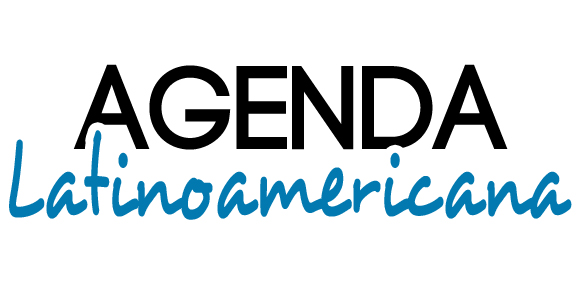The 11th International Conference on Education and Information Systems, Technologies and Applications: EISTA 2013, in the context of The 7th International Multi-Conference on Society, Cybernetics and Informatics: IMSCI 2013. July 9-12, 2013. Orlando, Florida, USA
Main Purpose: Relationships between Education/Training and Information/Communication Technologies (ICT) are increasing acceleratingly, sometimes in unexpected ways, with original ideas and innovative tools, methodologies and synergies. Accordingly the main purpose of EISTA 2013 is to bring together researchers and practitioners from both areas, in order to support the bridging process between education/training and ICT communities.
Invitation to participate: In order to accomplish this purpose, ICT researchers are invited to present their research results. Practitioners and consultants are invited to present case study papers and innovative solutions. Corporations are invited to present education/training information systems and software based solutions. Teachers and university professors are invited to present case studies, information systems developed for specific purpose, and innovative ideas and designs. Educational scientists and technologists are invited to present research or position papers on the impact and the future possibilities of ICT in educational systems and training processes and methodologies. Managers of educational organizations and training consultants are invited to present problems that might be solved by means of ICT, or solutions that might be improved by different approaches and designs in ICT. All are invited to organize panels or invited sessions. Panel sessions with panelists coming from both: ICT researchers/practitioners and teachers/professors.
Organizational, Reviewing, and Selection of Best Papers Policies
Technical Keynote Speakers: Technical keynote speakers will be selected from early submissions because this selection requires an additional evaluation according to the quality of the paper, assessed by its reviewers, the authors’ CV and the paper’s topic.
Virtual Pre- and Post-Conference Sessions: Face-to-face sessions of all events will have associated virtual pre- and post-conference sessions where registered participants can comment each paper in a forum associated to it. Registered participant at any event will have a password to access any virtual session of any collocated event.
Reviewing Process: All Submitted papers/abstracts will go through three reviewing processes: (1) double-blind (at least three reviewers), (2) non-blind, and (3) participative peer reviews. Final acceptance depends of the three kinds of reviews but a paper should be recommended by non-blind reviewers AND blind reviewers in order to be accepted for presentation at the conference and to be included in the respective conference proceedings. A recommendation to accept made by non-blind reviewers is a necessary condition, but it is not a sufficient one. A submission, to be accepted, should also have a majority of its double-blind reviewers recommending its acceptance. This double necessary conditions generate a more reliable and rigorous reviewing than a those reviewing methods based on just one of the indicated methods, or just on the traditional double-blind reviewing. More details regarding this issue can be found at http://www.iiis.org/iiis/PeerReviewing.asp.
The three kinds of reviews mentioned above will support the selection process of those papers/abstracts that will be accepted for their presentation at the conference, as well as those to be selected for their publication in JSCI Journal. Details regarding the Acceptance Policy can be found at http://www.iiis.org/iiis/AcceptancePolicy.asp.
Authors of accepted papers who registered in the conference can have access to the evaluations and possible feedback provided by the reviewers who recommended the acceptance of their papers/abstracts, so they can accordingly improve the final version of their papers. Non-registered authors will not have access to the reviews of their respective submissions.
Virtual Participation: Submissions for Face-to-Face or for Virtual Participation are both accepted. Both kinds of submissions will have the same reviewing process and the accepted papers will be included in the same proceedings.
Pre-Conference and Post-conference Virtual sessions (via electronic forums) will be held for each session included in the conference program, so that sessions papers can be read before the conference, and authors presenting at the same session can interact during one week before and after the conference. Authors can also participate in peer-to-peer reviewing in virtual sessions.
Invited Sessions Organizers: Registration fees of an effective invited session organizers will be waived according to the policy described in the web page (click on ‘Invited Session’, then on ‘Benefits for the Organizers of Invited Sessions’), where you can get information about the ten benefits for an invited session organizer. To propose the organization of an Invited Session, please visit the conference web site, and go to the menu option “Invited Sessions” and then to the menu sub-option “Invited Sessions Organizers.”
Best Papers: Authors of the best 10%-20% of the papers presented at the conference (included those virtually presented) will be invited to adapt their papers for their publication in the Journal of Systemics, Cybernetics and Informatics.
One best paper of each session included in the program will be selected by the respective session’s co-chairs after consulting with the session’s audience. Invited Sessions organizers will select the best paper of the session they organized. If there is a tie in a given session, the paper that will be selected as the best session’s paper will be the one which have had the highest quantitative evaluations average according to its double-blind and non-blind reviews.
The selection process of the best 10%-20% to be also published in the Journal, will be based on the sessions’ best papers and the quantitative evaluation average made by its anonymous and non-anonymous reviewers.
July 9-12, 2013
Orlando, Florida, USA
